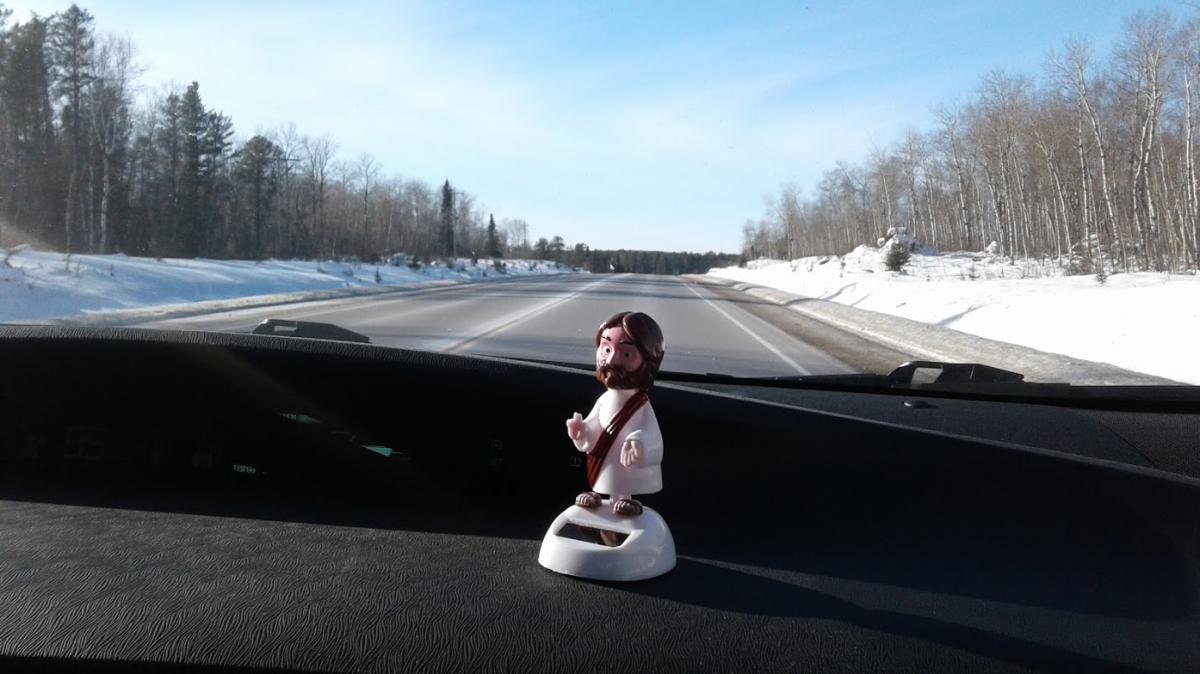Sermon - Nov 19, 2023 Prophet and Pastor

Prophet and Pastor
When we consider the images found in Isaiah 5 – the first of our readings – you might think that we see simple cause and effect. Our waywardness is the cause, and God’s fierce anger is the effect. But that’s not he whole story.
We are hearing this haunting song through the voice and heart of a prophet, and prophets in Scripture have become a stereotype for us. Our connection with the prophets is most lively when we imagine that their anger was reserved for their contemporaries, but their promises of hope can be claimed by our generation.
Bringers of doom – heralds of destruction – there can be good news in the prophetic proclamation, but it is usually set in some distant, idealized, practically unimaginable future.
Yet our Christian faith leans quite heavily on these variously imagined ‘better times’ as promised by God through those heralds of destruction. We owe it to ourselves to try and untangle our relationship with the prophets.
Prophets like Isaiah, who along with students and disciples over a 200 year period are responsible for the Old Testament book that bears the name. A book that spans a large period of history, and is thought to be at least two distinct books bound by a common purpose…the prophet’s purpose.
Prophets appear in Scripture as guides and goads. They challenge kings and represent the best of a beaten and battered people. We don’t often think of them as the equivalent of clergy – but we might. Their congregation is everyone; their parish – everywhere. For at their core, the prophets represented by their various books in the bible are, each and every one. worthy of the title Pastor.
They offer a word of warning, to be sure, but it is a word motivated by their devotion to God and a deep love and concern for God’s people. And we have an excellent example of that in this morning’s readings.
Isaiah is probably the best example of my point – and my personal favourite. The Christian Church has found that the forward-looking hopefulness in Isaiah’s collected work seems to point to Jesus…
But if we want to claim good news (in the form of Jesus) from the prophet’s words, we need to own up to the bad news as well.
The misery of our time is our responsibility. Just as the creator of the vineyard is disappointed in the results – Just as God’s expectations have not been met in the time of the prophet – nearly 900 years before the time of Jesus – so too does the injustice and bloodshed of these days break the heart of God. Our actions (or lack of action) are not excused just because we believe that the coming of Jesus has completed the cycle of punishment and forgiveness that is part of the prophet’s work. The idea of judgement still hangs over us, just as the promise of redemption is still on offer.
The prophet is broken hearted. This ‘love song’ on God’s behalf is an earnest attempt to remind the prophet’s flock that THEY are beloved; that the signs of God’s care and goodness are all around them, worth remembering and certainly worth celebrating. But so too are the signs of human ignorance of that goodness, and the misrepresentation of that care.
Those who imagine themselves uniquely called or especially loved or divinely chosen have abused those gifts and failed to share them as was intended. And that uncomfortable feeling we get when the prophets are read is triggered by the realization that the Prophet is our pastor too.
The so-called ‘wrath of God’ that is due those unfortunate souls is easy to define: insecurity, pain and suffering, imagined scarcity (really just hoarding) and the constancy of warfare. “God’s punishment’ you will hear some say. And there is a grain of truth in that, for all these are the direct result of humanity’s failure to apprehend the gift of God’s love.
The real intent behind the creation of this ‘pleasant planting’ is the refreshment of all, not just a few. God doesn’t ‘choose’ people to be rewarded with good worship and faithful devotion. God chooses folks to be examples of love and compassion in the world – to ‘spread the word’ of justice, and to follow that word with action.
We have claimed Jesus as the effect that will answer every cause. We honour Christ as the fulfilment of every bit of good news that hides behind the prophets blistering attacks. And if we really believe that, then we can’t just claim it – we need to act as though it were true. We need to own the misery we have caused, and change our behaviour to effect forgiveness, reconciliation and renewal. The Saviour of the world – the one who would redeem all creation – the one to whom all the prophet point – begins that restoration with us.
 St. John's
St. John's




